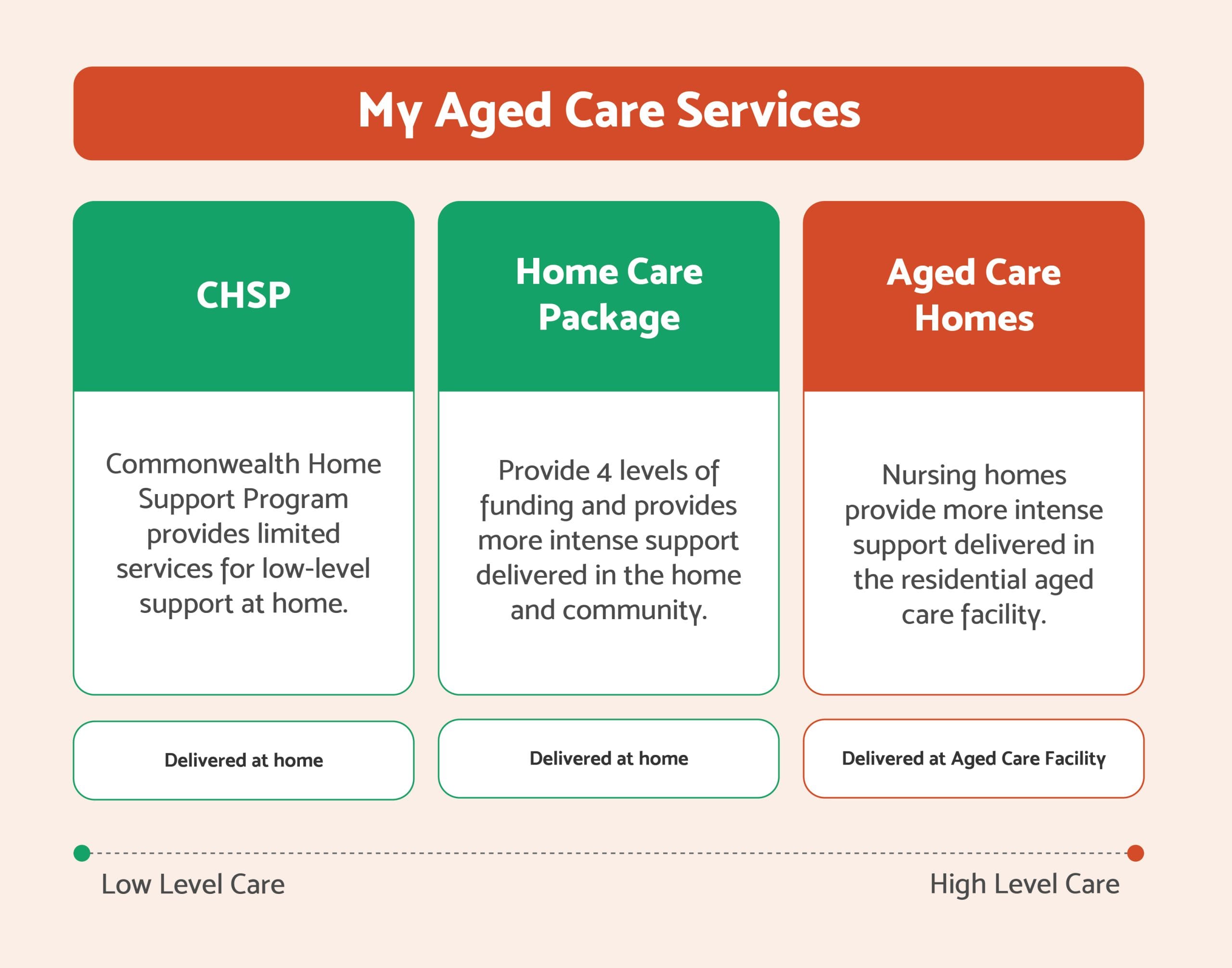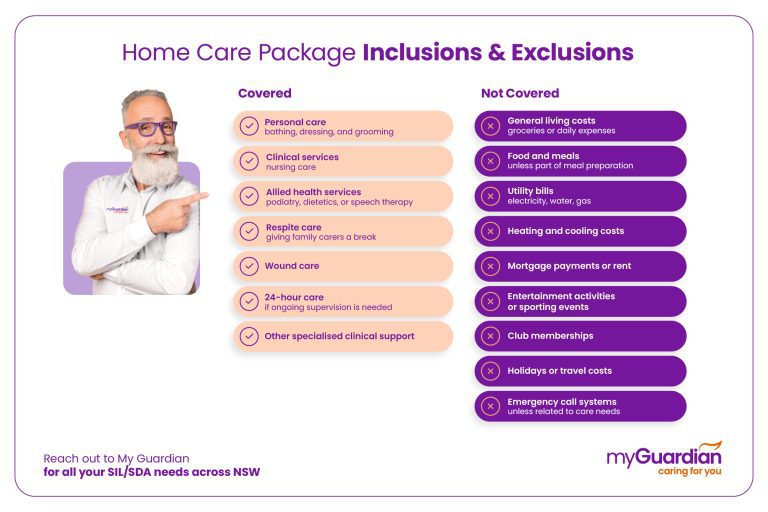Support at home plans: How to align services with your personal NDIS goals
Support at home plans: How to align services with your personal NDIS goals
Blog Article
All About Home Care Services for People With Disabilities: NDIS Registered Support
Home treatment solutions under the NDIS play a crucial role in sustaining people with impairments. These services are created to improve daily living through tailored assistance, ranging from individual treatment to mobility support. Recognizing how to navigate these options can be intricate. This summary explores the numerous facets of NDIS home care, from offered services to the option of providers, highlighting crucial factors to consider for those looking for support. The trip toward empowered treatment starts right here.
Recognizing the NDIS and Its Objective
The National Impairment Insurance Policy Scheme (NDIS) acts as a transformative structure created to provide support and services for people with handicaps. Developed to enhance the high quality of life and guarantee equitable access to important resources, the NDIS equips individuals by using customized strategies tailored to their one-of-a-kind requirements. It aims to promote freedom, allowing people to pursue their individual goals and aspirations.Through an organized strategy, the NDIS designates funding for different assistances, including education and learning, work help, and neighborhood involvement. This comprehensive plan not just concentrates on instant treatment however likewise emphasizes long-term developing end results. By advertising choice and control, the NDIS motivates participants to pick their preferred service suppliers, guaranteeing that treatment aligns with their values and choices. Eventually, the NDIS stands for a considerable commitment to boosting the lives of people with impairments, fostering inclusivity, and developing an extra encouraging culture.
Sorts Of Home Treatment Provider Available
Different kinds of home treatment services deal with people with impairments, mainly focusing on personal treatment aid and reprieve treatment alternatives. Individual treatment assistance offers crucial assistance with daily activities, while break treatment provides momentary alleviation for primary caretakers. Recognizing these services is important for making sure the well-being of both individuals with disabilities and their families.
Personal Treatment Help
While steering life can present challenges for individuals with impairments, individual treatment assistance uses essential assistance tailored to their distinct needs. This sort of home treatment service includes a variety of tasks created to promote freedom and boost lifestyle. Personal treatment aides assist with everyday jobs such as showering, clothing, brushing, and toileting, ensuring individuals maintain personal health and convenience. They may also help with meal preparation, medication administration, and wheelchair assistance. By supplying individualized treatment, these experts encourage people to engage even more completely in their social tasks and everyday routines. Generally, individual care aid plays a significant role in cultivating self-respect and autonomy for those with specials needs, allowing them to flourish in their home setting.

Reprieve Care Options
Reprieve treatment serves as a vital resource for family members and caregivers of people with impairments, giving temporary relief from the needs of day-to-day caregiving. This sort of service can take different kinds, including in-home break treatment, where trained experts go to the home to aid with treatment tasks. Conversely, households might go with facility-based break care, where people receive treatment in a specific setting, allowing caretakers to relax. Furthermore, some companies provide emergency situation respite services for unexpected situations. These alternatives not only assist reduce caregiver tension yet also advertise the well-being of individuals with impairments by providing them brand-new experiences and social interaction. On the whole, break treatment plays an important role in supporting both caregivers and those they care for.

How to Accessibility NDIS Home Care Providers
Accessing NDIS home treatment solutions includes understanding the eligibility standards stated by the National Impairment Insurance Coverage Scheme. Individuals need to browse an organized application procedure to protect the necessary support customized to their demands. This section will certainly make clear both the qualification demands and the steps involved in making an application for services.
Qualification Criteria Explained
To receive NDIS home treatment services, people should satisfy certain qualification criteria that assess their requirements and situations. Candidates should be aged in between 7 and 65 years and have a irreversible and significant special needs that influences their ability to perform day-to-day tasks. In addition, they need to be an Australian citizen, an irreversible citizen, or hold a Protected Unique Group Visa. The NDIS requires proof of the impairment, typically via medical evaluations or reports. In addition, individuals need to show that they need support to take part in economic and social life. These criteria guarantee that services are guided towards those that genuinely require support, promoting freedom and boosted top quality of life for people with handicaps.
Application Refine Actions
Can I Choose My Very Own Support Workers Through NDIS?
The specific asked whether they could pick their very own assistance workers under the NDIS framework. Usually, individuals have the adaptability to select support workers, cultivating personalized care that straightens with their certain needs and preferences.
What Takes place if My Requirements Change After Getting Assistance?
They must communicate these adjustments to their service company if a person's needs adjustment after receiving assistance. you can check here Adjustments can be made to the care strategy, making certain that the support continues to be efficient and pertinent for their scenarios.

Exist Limits on The Number Of Hours of Treatment I Can Obtain?
The individual asked about possible limits on the number of care hours got. Normally, such limits may exist based on specific policies or funding arrangements, emphasizing the importance of assessing standards and arrangements routinely.
Can I Make Use Of NDIS Funding for Home Modifications?
The inquiry of utilizing financing for home adjustments occurs frequently. Typically, individuals might make use of NDIS funding for needed adjustments to their homes, guaranteeing ease of access and safety, section upon meeting certain qualification requirements and standards.
Exactly how Do I Handle Issues About My Home Treatment Services?
To address issues concerning home treatment solutions, people need to initially document their concerns. They can communicate directly with their service provider, looking for resolution, or escalate the problem to relevant oversight bodies if necessary. Home care solutions under the NDIS play a critical duty in supporting people with specials needs. Various types of home treatment solutions cater to people with handicaps, mainly focusing on personal treatment aid and break care choices. home care package providers. Personal care assistance offers important support with daily tasks, while respite treatment offers short-term relief for key caretakers. Family members may opt for facility-based reprieve care, where people get care in a customized environment, permitting caregivers to take a break. Just how can families efficiently handle the economic facets of home care solutions for individuals with impairments?
Report this page